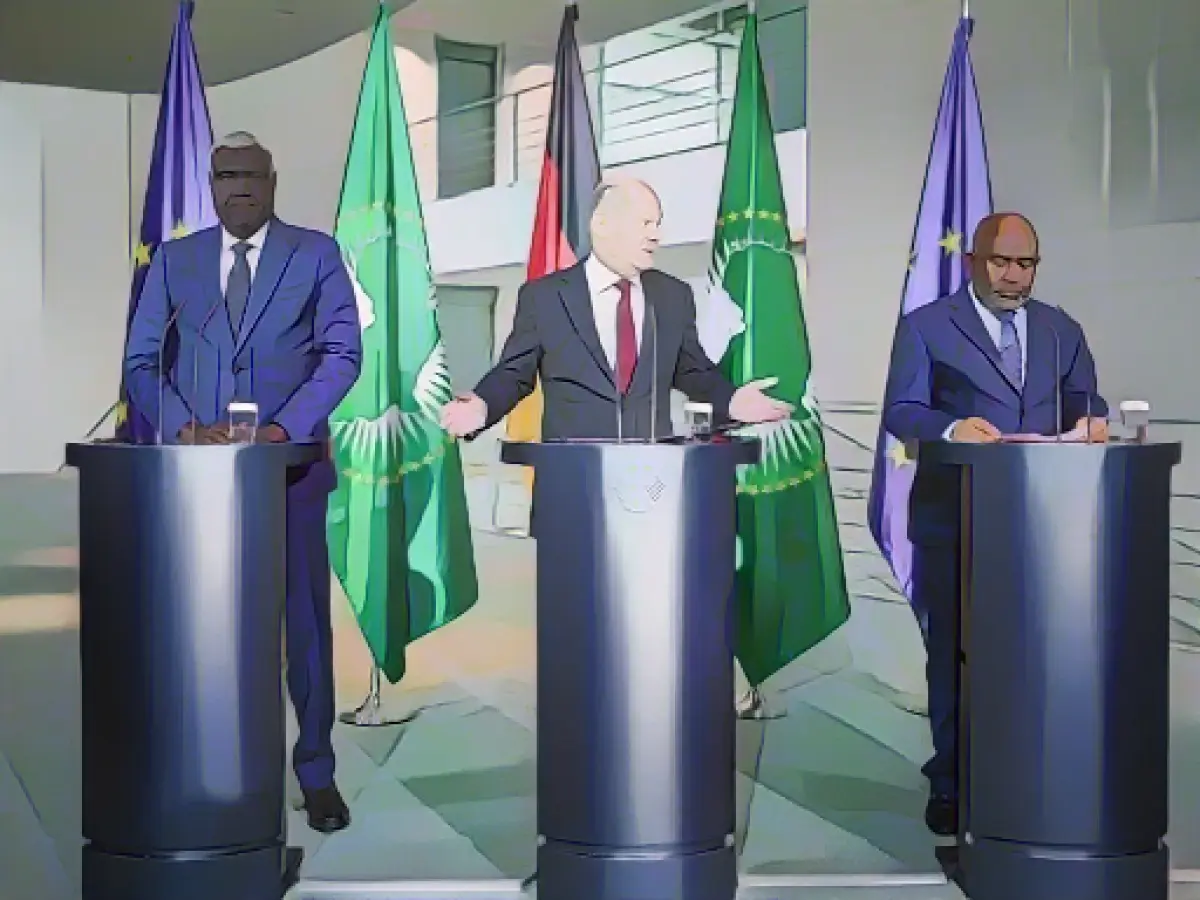Title: Olaf Scholz: Africa as Germany's Preferred Partner in Economic Growth and Sustainability
Chancellor Olaf Scholz sees Africa as Germany's preferred partner in venturing towards a sustainable and economically prosperous future. Addressing a press conference on the "Compact with Africa" summit in Berlin, Scholz highlighted energy issues and green hydrogen production as key areas of cooperation between Germany and African nations. "We're committed to fostering a long-term, resilient partnership with Africa," said Scholz, emphasizing the potential for sustainable growth and shared climate goals.
The "Compact with Africa" initiative started during Germany's G20 tenure in 2017 and aims to strengthen economic conditions for private investment in 13 African countries: Egypt, Ethiopia, Benin, Burkina Faso, Côte d'Ivoire, Ghana, Guinea, the Democratic Republic of Congo, Morocco, Rwanda, Senegal, Togo, and Tunisia. Other nations are also keen to join the initiative.
Scholz acknowledged the collaboration's success since its initiation, with participating countries performing better than the regional average in terms of economic growth. Foreign direct investment in these countries has escalated significantly, indicating strong private-sector interest in Africa's economic potential.
Commenting on expanded economic ties, Scholz stated, "Africa's immense potential can only be harnessed through substantial private investment." German businesses are reportedly enthusiastic about engaging with African markets, and the government supports investments by offering favorable guarantee conditions.
Aziz Assoumani, Chairperson of the African Union, and Moussa Faki Mahamat, Chairperson of the African Union Commission, affirmed Africa's openness to multiple partnerships, including those from China, given its existing presence in the continent. Both leaders emphasized the issue of high debt burdens and interest rates, which hinder African countries' own investment efforts.
Though "Compact with Africa" isn't explicitly mentioned as a source, related initiatives aimed at enhancing economic growth in Africa include:
- Africa Prosperity Dialogues 2025 Compact: A continent-wide project, aiming to mobilize a sizable African population to contribute $1 a day to a mutual infrastructure fund, focusing on energy, transport, and digital infrastructure projects.
- Mission 300 Initiative: A commitment from 30 African Heads of State to ensure that 300 million people have access to reliable and affordable electricity by 2030, with specific plans for renewable energy and private investment.
- Foreign Direct Investment (FDI) in Africa: Large-scale contributions from international players like the US, GCC, India, and China endorse the potential of the African market, predominantly in sectors like telecommunications, services, tech, renewable energy, and health systems.
- Public-Private Partnerships (PPPs) in Africa: African governments are leveraging PPPs to bridge the continent's $100 billion annual infrastructure financing gap. While attracting private capital, these projects carry integrity risks due to their complexity and capital requirements.
While not directly mentioned, these initiatives are indicative of broader efforts to bolster economic growth requirements and foreign investment in Africa, complementing "Compact with Africa" ideals.




